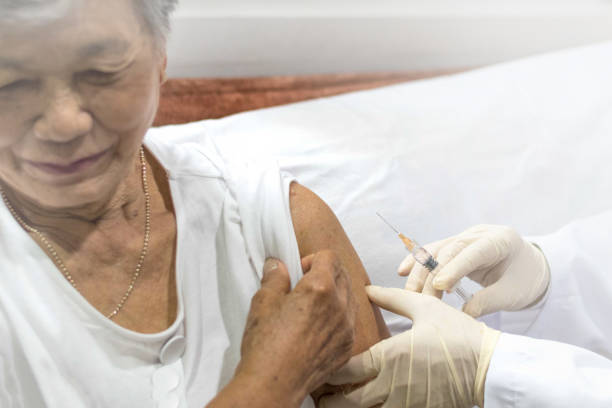Today, the American College of Cardiology (ACC) released vaccination recommendations for adults with cardiovascular disease, urging immunization against COVID-19, influenza, respiratory syncytial virus (RSV), pneumonia, and herpes zoster (shingles).
The guidelines, published in JACC, also provide detailed evidence for each vaccine recommendation and answers to frequently asked questions for patients and clinicians to discuss as part of a standard prevention and treatment plan.
People with heart disease are at higher risk for poor outcomes from respiratory virus infections, such as hospitalization and death. But while vaccines have been shown to be highly effective in reducing these risks, a 2021 study found that only 30% of primary care physicians address patients' vaccination status at clinic visits, the authors noted.
"Vaccination against communicable respiratory diseases and other serious diseases is critical for people with heart disease, but barriers exist to ensuring people are educated on which vaccines to get, how often to get them and why they are important," Paul Heidenreich, MD, chair of the ACC's Concise Clinical Guidance writing committee, said in an ACC press release.
Overcoming vaccine hesitancy, access barriers
The ACC said it published the recommendations to integrate vaccine guidance from the ACC/American Heart Association and the Centers for Disease Control and Prevention (CDC).
"The guidance mainly focuses on respiratory vaccines but also offers guidance based on emerging evidence that other vaccines—such as the herpes zoster (shingles) vaccine—may offer cardiovascular protective benefits," the authors wrote.
The document outlines strategies to improve vaccination rates, address hesitancy and overcome barriers to access, noting that clinician-patient discussions about vaccination during cardiology visits can be an important opportunity to integrate vaccination into a cardiovascular care plan.
The vaccine-specific recommendations are:
- Flu vaccination is recommended annually for all adults to reduce cardiovascular disease and cardiovascular-related and all-cause death. Patients older than 50 years shouldn't receive nasal versions of the vaccine.
- The pneumococcal vaccine (PCV) is recommended for adults aged 19 or older with heart disease to protect against pneumonia, bacteremia, and meningitis and the related risks of hospitalization and death. Per the CDC's Advisory Committee on Immunization Practices (ACIP), a single dose of PCV20 or PCV21, or PCV15 followed by PPSV23 is recommended, depending on vaccination history.
- COVID-19 vaccination was recommended for all adults with heart disease during the 2025-26 respiratory virus season. While future recommended vaccination frequency may change, the ACC said that vaccination is likely to remain beneficial. "Benefits include reduced risk of infection, severe infection, death, heart attack, COVID-19 induced pericarditis/myocarditis, COVID-19 induced stroke and atrial fibrillation, and long COVID symptoms," the authors wrote.
- A single one-time dose of RSV vaccine is recommended for all adults aged 75 years or older and for those 50 to 74 with cardiovascular disease to protect against lower respiratory disease and related hospitalization and death.
- Two doses of the shingles vaccine are encouraged for adults aged 50 years or older to protect against the increased risk of stroke and heart attack during herpes zoster infection. People with heart disease are at increased risk for infection.
"The document outlines strategies to improve vaccination rates, address hesitancy and overcome barriers to access, noting that clinician-patient discussions about vaccination during cardiology visits can be an important opportunity to integrate vaccination into a cardiovascular care plan," the authors concluded.



















